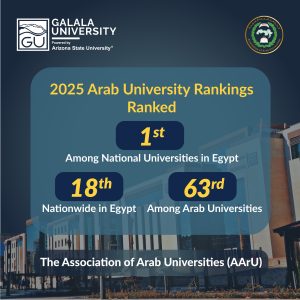The internship of students from the Faculty of Sciences at Galala University, Egypt, hosted by the Faculty of Agriculture at the University of Life Sciences in Timișoara, Romania (ULST), concluded successfully on June 27th.
Under the supervision of Prof. Dr. Mohamed Ali Abou-Zeid, Dean of the Faculty of Sciences, Prof. Ahmed ElHussein Elnewishy, Director of the Molecular Biotechnology Program, and Prof. Mahmoud Abdelsadek, the internship took place between June 23rd and 27th and offered a comprehensive and enriching experience for all participants.
Throughout the week, students participated in various activities, interactive workshops, and professional site visits. Their journey began in the Department of Agricultural Technologies, where they engaged in practical fieldwork at the Agricultural Research and Development Station Lovrin, exploring cutting-edge agricultural techniques in real-world settings.
In the Department of Biology and Plant Protection, students visited specialized laboratories including Biology, Botany, Plant Protection, and Comparative Anatomy. They worked with butterfly and insect collections and gained experience using advanced lab equipment.
At the Department of Soil Sciences, students learned to identify soil profiles, collect samples, and conduct soil analysis using modern technologies. Meanwhile, in the Department of Sustainable Development and Environmental Engineering, they practiced drone operations and collected geospatial data for precision agriculture—merging AI technologies with sustainable practices.
This internship fostered not only scientific and technical learning but also cultural exchange and personal development. The students returned with valuable knowledge, hands-on skills, and a broader global perspective.
This internship not only provided practical and scientific enrichment but also contributed to the advancement of the UN Sustainable Development Goals (SDGs). By promoting quality education, SDG 4, fostering innovation in sustainable agriculture, SDG 9, encouraging climate action, SDG 13, and enhancing partnerships between international institutions, SDG 17, the program empowered students to think globally and act locally with a focus on sustainability, food security, and environmental responsibility.











